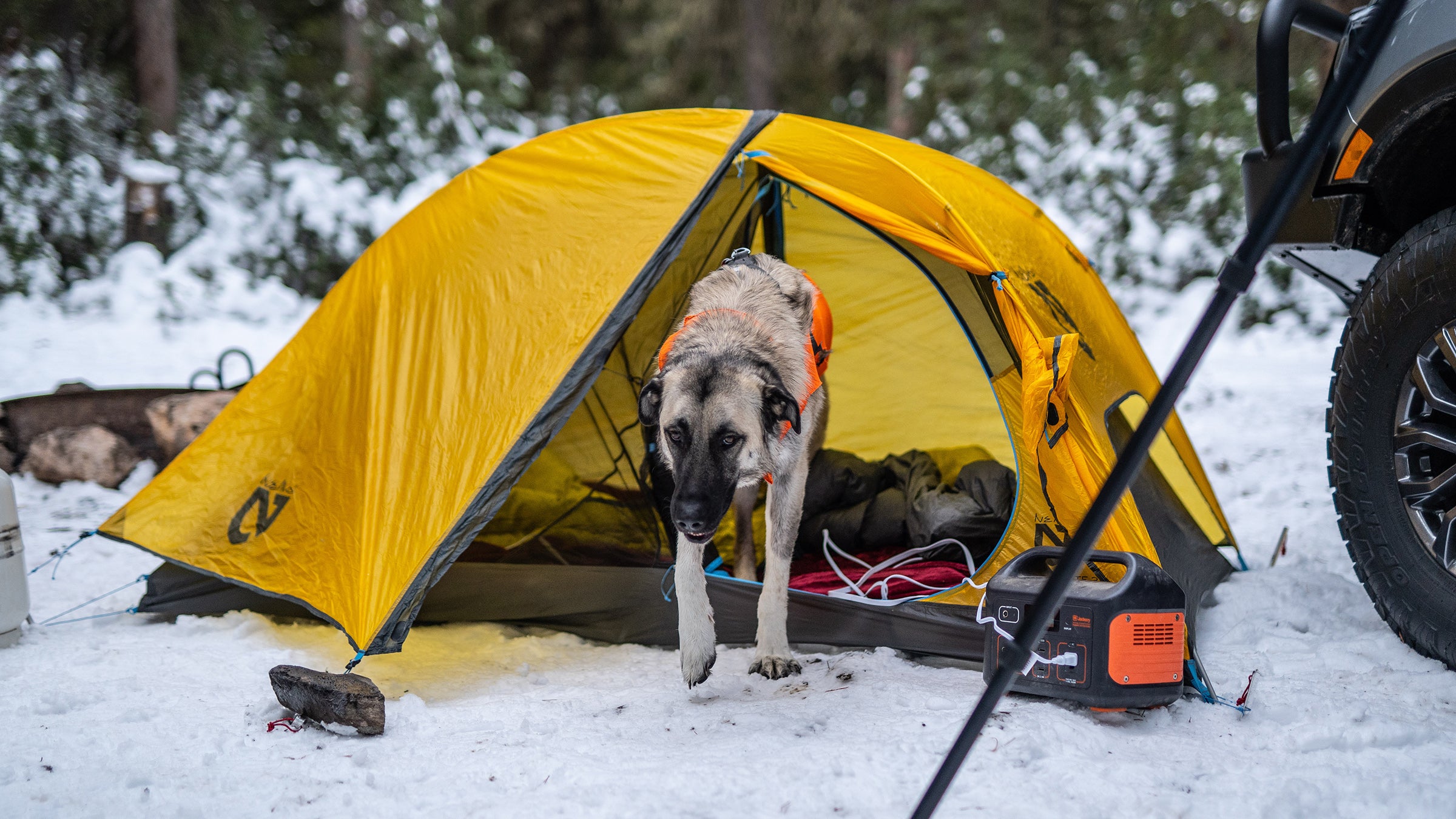The Safety Of Propane Heaters In A Tent
The Safety of Propane Heaters in a Tent
Major Concerns
Several major safety concerns must be addressed when utilizing a propane heater in a tent. These include the risk of carbon monoxide poisoning, fire hazards, and the need to properly test the heater’s safety features.
Fire Safety Measures
Aside from carbon monoxide, fire hazards are another critical concern when using propane heaters in a tent. It’s essential to have fire safety measures in place, such as keeping flammable materials away from the heater and having a fire extinguisher readily available.
Testing The Heater’s Safety Features
Before using a propane heater in a tent, it’s imperative to test its safety features thoroughly. This includes ensuring the presence of an automatic shut-off feature if the heater is tipped over and verifying the functionality of any oxygen sensors to prevent low oxygen levels from posing a risk.
Types Of Indoor-safe Heaters
When it comes to staying warm inside a tent, safety is a primary concern. Choosing the right type of indoor-safe heater is crucial to ensure a comfortable and secure camping experience. Several heaters, including electric, propane, and butane heaters, are safe for indoor use. Let’s take a closer look at each type and their safety features.
Electric Heaters
Electric heaters are a popular choice for indoor tent heating. They are considered safe for indoor use as they do not produce any harmful emissions. With various designs and sizes available, electric heaters offer a convenient and safe heating solution for tent camping.
Propane Heaters
Propane heaters are another option for heating tents. Additionally, many propane heaters are fitted with An oxygen sensor that shuts down a heater when it detects a low oxygen level, ensuring safe indoor use.
Butane Heaters
Butane heaters are also suitable for indoor use in tents, providing a portable and efficient heating solution. Like propane heaters, butane heaters have safety features such as an automatic shut-off feature and an oxygen sensor, making them safe for use inside tents.
| Heater Type | Automatic Shut-Off | Oxygen Sensor |
|---|---|---|
| Electric Heaters | ✔ | ❌ |
| Propane Heaters | ✔ | ✔ |
| Butane Heaters | ✔ | ✔ |
Selecting a heater that matches your specific camping needs while prioritizing safety is essential. Whether you opt for an electric, propane, or butane heater, ensure that it includes the necessary safety features to make it suitable for indoor use in a tent.
Guidelines For Using Propane Heaters In Tents
When it comes to camping in cold weather, propane heaters can provide much-needed warmth inside your tent. However, it’s crucial to follow the necessary guidelines to ensure the safety of everyone involved. Here are some important guidelines to keep in mind:
Keeping The Heater Outside The Tent
One of the most important rules for using propane heaters in tents is to keep the heater outside of the tent. This ensures that any potential fire hazards or leaks are kept from the enclosed space. Place the heater at a safe distance from the tent’s entrance.
Using A Tube For Air Blow
Using a propane heater and a tube or hose to blow the warm air into the tent is important. This allows for proper ventilation and prevents the buildup of carbon monoxide inside the tent. Ensure the tube is securely attached to both the heater and the tent to avoid leaks.
Safe Distance From The Tent
Ensure that the propane heater is placed at a safe distance from the tent. Generally, keep it at least three feet away to prevent potential heat damage or fire risks. Maintaining this safe distance allows for adequate airflow and prevents accidental contact with flammable material.
Approved Propane Heater Use
It is crucial to use propane heaters that are specifically approved for tent use. Check the manufacturer’s guidelines & ensure that the heater you choose is safe for indoor use. Check for heaters with built-in safety features, like automatic shut-off and low-oxygen sensors, for added peace of mind.
Following these guidelines will help ensure the safe & proper use of propane heaters in tents, allowing you to enjoy a warm & cozy camping experience without compromising safety.
Carbon Monoxide Risks And Prevention
Understanding The Dangers Of Carbon Monoxide
Carbon monoxide is a colorless, odorless gas that can become a deadly threat when present in high concentrations. It is produced when propane fuel is burned, such as in propane heaters used in tents. The gas can quickly accumulate in enclosed spaces like tents, posing a significant risk to campers. Understanding the potential dangers of carbon monoxide is crucial in ensuring the safety of everyone inside the tent.
Exposure To Carbon Monoxide From Propane Heaters
Exposure to carbon monoxide can lead to symptoms like headaches, dizziness, nausea, confusion, & even loss of consciousness. Since propane heaters produce carbon monoxide as a byproduct of combustion, it is essential to be aware of the risks when using them in a tent. Even a small leak or malfunction in the heater can result in dangerous levels of carbon monoxide, putting everyone at risk.
Preventing Carbon Monoxide Poisoning
Taking proactive measures to prevent carbon monoxide poisoning is crucial when using propane heaters in a tent. Here are some steps you can take to ensure everyone’s safety:
1. Ventilation: Adequate ventilation is essential to allow the carbon monoxide to dissipate. Ensure there is a well-ventilated opening in the tent, ideally near the heater, to allow fresh air to enter & carbon monoxide to exit.
2. Proper Placement: Always place the propane heater on a stable surface, away from flammable materials. Ensure it is positioned at least three feet away from combustible objects, including walls and furniture.
3. Carbon Monoxide Detector: Invest in a high-quality carbon monoxide detector specifically designed for camping or indoor use. Place it near the sleeping area in the tent to provide early warning in case of any carbon monoxide buildup.
4. Regular Maintenance: Regularly inspect & maintain the propane heater to ensure it functions correctly. Check for any leaks, loose connections, or damaged components that could contribute to carbon monoxide emissions.
5. Never Leave Unattended: Never leave the propane heater unattended, especially when sleeping. Always turn it off before going to bed or leaving the tent.
By following these preventive measures, you can minimize the risk of carbon monoxide poisoning & enjoy the warmth provided by propane heaters safely in your tent. Remember, safety should always be the top priority when using any type of heating device in enclosed spaces.
Proper Maintenance And Inspection Of Heaters
Regular maintenance and thorough inspection of propane heaters are vital to ensure their safe & efficient operation in a tent. By following a proper maintenance routine and using an inspection checklist, you can minimize the risk of accidents and maximize the lifespan of your heater.
Regular Maintenance
Regular maintenance tasks are crucial to keep your propane heater in optimal condition. Here are some essential steps to include in your maintenance routine:
- Clean the heater: Remove any dirt, debris, or obstructions from the heater’s surface, burner, and other components. This helps maintain proper airflow and prevents potential hazards.
- Inspect the fuel supply: Ensure the propane tank is properly connected and securely fastened. Check the fuel level regularly and replace the tank when necessary to avoid unexpected fuel depletion.
- Test the ignition system: Check the heater’s ignition system to ensure it functions correctly. If the ignition system is faulty, it can lead to problems such as incomplete combustion or delayed ignition, which may compromise safety.
- Inspect the venting system: Propane heaters require proper venting to exhaust combustion byproducts, including carbon monoxide. Ensure the venting system is clear of debris or obstructions to maintain safe indoor air quality.
Inspection Checklist
Creating an inspection checklist can help you stay organized & ensure that no crucial steps are missed during your heater’s inspection process. Here is a sample inspection checklist you can use as a reference:
| ✓ | Check for leaks in propane connections. |
| ✓ | Inspect the burner for any visible damage or corrosion. |
| ✓ | Test the ignition system for proper functionality. |
| ✓ | Ensure proper fuel supply and tank connection. |
| ✓ | Inspect the venting system for any blockages. |
| ✓ | Check for proper placement and stability of the heater. |
| ✓ | Confirm the functioning of safety features, such as tip-over and low oxygen shut-off. |
Ensuring Safety And Efficiency
Regular maintenance and inspections contribute to the safety of using propane heaters in a tent and ensure their efficiency. By keeping your heater well-maintained and identifying potential problems in advance, you can prevent issues from escalating and avoid unexpected breakdowns during your camping trips.
In summary, proper maintenance and inspection of propane heaters are essential to guarantee their safety and efficient operation in a tent. By incorporating regular maintenance tasks and following a comprehensive inspection checklist, you can minimize risks, prolong your heater’s lifespan, and enjoy a warm and cozy camping experience.

